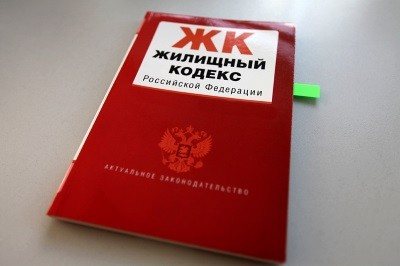What are the chances?
Is it possible to exchange a non-privatized apartment? There is a chance to exchange a municipal apartment .
According to the law, there is no prohibition on exchanging public housing provided for residence for another.
However, it is worth considering all possible options separately.
Is it possible to exchange a non-privatized apartment for a privatized one ? It is not possible to exchange a municipal apartment for a privatized one. The laws clearly establish the rule according to which such action is possible in relation to apartments of the same form of ownership .
In practice, the owner of the apartment would hardly agree to exchange it for a state-owned one.
Even if this happened, the law does not allow the implementation of such a scenario.
Read about the rules for exchanging a privatized apartment in our article.
Exchange of a municipal apartment for a municipal one. Is it possible to exchange a non-privatized apartment for a non-privatized one? The only way to change living space provided under social rent is to do it for the same living space .
This is sometimes necessary to change your living conditions when there is no other choice. However, in order to exchange a non-privatized apartment for a non-privatized one, it is necessary not only to select an alternative, but also to obtain written approval from all family members .
It is strictly required to obtain the same confirmation from the lessor.
Is it possible to exchange a municipal apartment without the consent of the residents ? According to Art. 72 of the Housing Code of Russia for a trouble-free exchange for a selected option of living space, you must obtain approval:
- landlord;
- family members of the tenant living in this premises.
This means that the consent of absolutely all residents is not required if, for example, there are strangers among those registered.
Paragraph 3 of this article establishes the possibility of going to court if consensus is not reached between the employer and residents. In addition, it indicates the right of the court to make a decision on the forced completion of the desired procedure.
Other options for exchanging a municipal apartment for an apartment. There is another option for performing such an action - privatization of the apartment . If you privatize municipal housing, then you can barter absolutely freely without asking for anyone’s approval.
You can submit a sample claim to court for forced exchange of an apartment.
So, in addition to the application, you will need:
- passports/birth certificates of co-owners, as well as all registered residents;
- a certificate confirming the right to own a share of ownership of the apartment;
- cadastral passport;
- information about residents;
- notification to guardianship and trusteeship authorities;
- an extract from the personal account confirming the fact of registration.
In your application, you must describe the current situation and the attempts made to find solutions.
A separate line indicates the requirement to recognize the need to exchange housing.
An expert commission has been called upon to assess the situation, as they say, on the spot. The option of dividing property in kind is being considered.
This means that each side will be assigned a separate room, into which, if necessary, you can even insert a lock; the possibility of sharing a bathroom and toilet room is also being discussed.
Legislative regulations

Is it possible to exchange a non-privatized apartment legally?
Housing Code of the Russian Federation in Art. 72 defines the possibility and rules for the exchange of municipal housing.
This is the main law applicable in this case.
The Civil Code of the Russian Federation is also relevant to the regulation of this issue, which establishes the possibility of exchanging privatized real estate only for similar ones.
Where to look for options?
How to exchange a non-privatized apartment: where to look for exchange options? Most often, the problem of finding options falls on the shoulders of the person concerned.
He can independently search for acceptable objects, however, it is very difficult to find . There are many offers on the websites for the exchange of owned apartments and municipal real estate is rarely found.

You should contact the administration and find out whether such a service exists in this locality.
If there is, then this can significantly simplify the task and speed up the process, but if not, you will have to rely on your own strength, word of mouth or the help of intermediaries.
You can learn about the possibility of exchanging a non-privatized room in a communal apartment from our article.
How to exchange a non-privatized apartment?
The exchange of a non-privatized apartment located in social rent takes place in several stages.
- Search for possible options. Quite often it is at this stage that the exchange process ends. In addition to the fact that there are few non-privatized apartments left (see Why privatize an apartment), and there are few families willing to live together in the same area, you will also have to look for a suitable option yourself - it is not profitable for real estate agencies to do this. However, the exchange does not have to take place in one city - you can look for options in other localities.
- Preparation of documents (in particular, concluding a social tenancy agreement if there is none). You also need to make sure that there is no debt for utilities, since if there are debts, exchange will be impossible. Next, you need to collect all the required documents.
- Obtaining permission to exchange. It can be obtained from the property owner (municipality). It is also necessary to consent to the exchange of all persons registered in the apartment. If children under 18 years of age live there, permission must be obtained from the guardianship council. Problems with the board of trustees can only arise if the new housing has a smaller area than required by the standards.
- Drawing up an exchange agreement. Transactions are concluded not in Rosreestr, but in special institutions that have the authority to register exchange transactions. Based on the exchange agreement and the consent of each party, previously reached agreements are terminated.
- Registration of a social rental document for new housing.
According to the law, all procedures related to registration are carried out within 10 days from the time the employer submits all documents.
A non-privatized apartment cannot be exchanged for a privatized one!
Instructions for implementing the process
How to exchange a municipal apartment? In order not to make a mistake with going through all the stages and to do everything quickly and without unnecessary problems , it is necessary to consider all the main stages. So, the step-by-step instructions look like this:
- Find a suitable option in every possible way.
- Agree with the tenant of the found housing.
- Request permission from the landlord and wait for the other party to receive permission.
- Obtain consent from the guardianship and trusteeship authorities if there is a minor among those registered;
- Agree with family members, enlist their support and wait for the same consensus from the other party.
- Collect the necessary package of documents for each party.
- Conclude an agreement similar to the agreement for the exchange of privatized housing.
- Each participant must sign this document.
- Send each copy to your landlord for approval and signature.
- If confirmation is received, actually carry out the actions.
- Conclude a social rental agreement for each party with a new landlord.

In addition, it is important to remember that housing should not worsen the housing situation compared to the past.
In addition, in such a special case, it is difficult to exchange living space for a similar one, so you almost always have to sacrifice something for both or one of the parties.
None of the exchanging tenants has the right to charge additional payment for a less profitable option. This is due to the fact that he has no right to receive personal benefit from such property , since the real estate actually belongs to the municipality.
Exchange of a municipal apartment: where to start?
What is required to exchange an apartment in court?
It is possible to exchange a municipal apartment through the court. To do this you need to do the following:
- Make sure that all landlords and persons under 18 years of age who are registered in the apartment are ok with the exchange. Moreover, it does not matter whether a person lives in an apartment or is simply registered there.
- Find a suitable option for exchange. The most convenient way to search is on thematic sites on the Internet or through a realtor.
- Draw up an exchange agreement. All renters must have their own copy. Cancel the social rental agreement for the apartment and draw up another agreement for the apartment of the tenant with whom the exchange is taking place.
Where to start, where to turn?
You should start by searching for a suitable property, and once it is found, you can begin to obtain numerous permits.
Situations with the refusal of any participant in the procedure may arise, so there is a possibility of litigation arising on this basis, which will further complicate the process.
Where to go? Apart from the indicated persons and bodies who must give consent to the transaction, there is no need to apply anywhere. The contract is drawn up in simple written form and certified by the landlord.
In order to receive it, you must contact the governing body of the municipality that owns the property being exchanged.
Submission of documents
What documents are required? In order to draw up an agreement and receive numerous confirmations, you will need the following documents :
- a statement signed by the employer and all members of his family living with him;
- social tenancy agreement and copy;
- certificate of absence from paying for accommodation and services;

certificate of all those registered;- consent of the guardianship and trusteeship authorities in writing, if there is a minor among the registered family members;
- applicant's passport;
- agreement after receiving all consents.
The lessor does not draw up a separate paper for his consent; he must sign the application, and then the contract.
The package of papers should also be collected by the other party , since the transaction affects it to the same extent as the applicant and his family.
Where to submit documents? The agreement can be drawn up yourself or with the help of a lawyer.
It requires a simple written form, so going to a notary is not necessary. However, before signing it, all papers must be submitted to the management body of the lessor, i.e. to the municipality.
If you want to do it, do it yourself
Let's say no obstacles are detected. What then should a citizen do? The answer is simple: look for exchange options yourself. Alas, no one else will do this. Is it possible to exchange a non-privatized apartment through a real estate agency? Unfortunately, in most cases, no. Almost none of the realtors will do this, since for them working on such an exchange is simply unprofitable. And municipal or state organizations are not obliged to help citizens in such matters.
Subscribe to our newsletter
Yandex.Zen VKontakte Telegram
However, it is possible to find housing for exchange. Moreover, the law does not prohibit exchanges for other cities. With the consent of the owner organizations, it is even allowed to move into non-privatized housing for citizens who previously lived in another city. In this case, the new tenant simply enters into a social tenancy agreement and accepts all rights and obligations under it.
Terms and cost of registration
It is difficult to name the exact timing of registration from start to finish, since everything depends on the presence of litigation and the speed of granting permits from various persons and authorities.
Definitely, the process will last for several months , since just the search for suitable living space can be lengthy.
All exchange processes are free of charge . The parties can draw up the agreement on their own; obtaining all approvals does not require material costs.
Additional costs may arise in connection with the involvement of a lawyer in the process or going to court, where the payment of a state fee for consideration of the claim will be required.
In addition, if suitable real estate is found with the help of the administration department, then a set amount will have to be paid for this.
Failure Cases

When can they provide registration?
A refusal may be issued in several cases:
- there is no one’s consent to the transaction, although the problem can be resolved in court in the event of an unlawful refusal to give approval;
- a strong difference in objects, threatening a significant deterioration of living conditions or the unsuitability of one of the premises for living, emergency condition;
- infringement of the rights of a minor if the guardianship and trusteeship authorities consider the presence of such a factor;
- exchange for privatized housing;
- termination of a social tenancy agreement with one of the parties for legitimate reasons in court or the presence of such a case during the proceedings.
Coordination with everyone living in the apartment
First, you need to obtain written consent from all persons registered in the apartment, including those who do not currently live in it, but are listed according to documents. If children, disabled people or people with disabilities are registered in the apartment, then in addition to their consent, permission from the guardianship and trusteeship authorities will be required. Most often, the application is considered within two weeks.
Guardianship authorities have every right to refuse if living conditions in the new apartment are worse.








